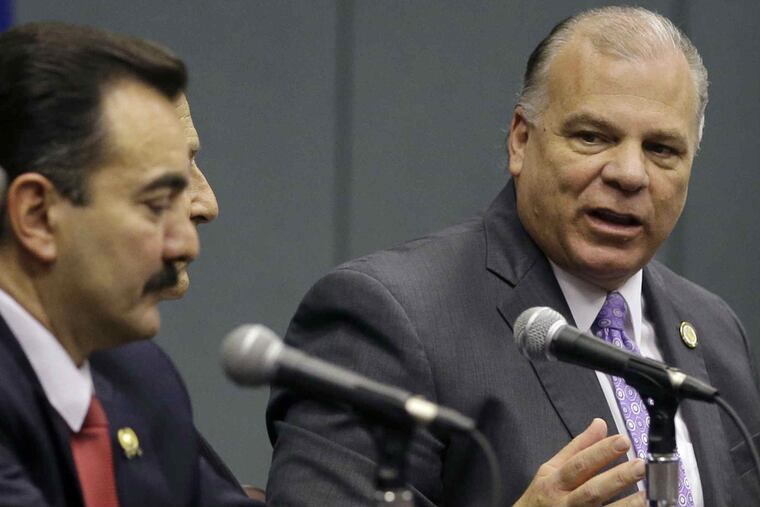Opting in to more saving
About 3.8 million people in Pennsylvania and New Jersey work for companies that offer no retirement benefits, not even unmatched 401(k)-style plans. As a result, many could retire from low-pay jobs into poverty.

About 3.8 million people in Pennsylvania and New Jersey work for companies that offer no retirement benefits, not even unmatched 401(k)-style plans. As a result, many could retire from low-pay jobs into poverty.
The 1.7 million such workers in New Jersey could get more help than their Pennsylvania counterparts under a bill requiring companies with at least 25 employees to encourage use of a state-run retirement savings plan.
The plans would be low-cost for employers, who would not be required to fund or administer them. They would be responsible only for making payroll deductions for retirement savings to be administered by a state board.
New Jersey would automatically enroll employees in the program, but they would be free to opt out - a shift from our usual opt-in approach to retirement savings. In a country with an abysmal savings rate and a looming retirement savings crisis, this is smart. Automatic enrollment makes employees 15 times more likely to save than they would be if they had to sign up for a program, according to AARP, which is lobbying for the program.
New Jersey's so-called Secure Choice program could be more useful to workers than the "myRA" individual retirement accounts President Obama announced last year, which depend on employer cooperation. Secure Choice participation would be mandatory for employers.
The legislation, sponsored by Senate President Stephen Sweeney (D., Gloucester) and House Speaker Vincent Prieto (D., Hudson), rightly prohibits the state from touching the funds or hiring managers who charge exorbitant fees. The fees should be carefully watched because of their tendency to erode savings.
About half the states are considering similar programs, with Maryland, Illinois, California, and Oregon leading the pack. The Obama administration has cleared legal hurdles for the plans and pledged to help states implement them.
These programs are better than nothing, which is what too many Americans are saving for retirement. They won't provide participants with all the money they need for a comfortable retirement, but they will encourage more workers, especially younger ones, to start saving.
With fewer employers offering traditional, defined-benefit pensions, existing pensions imploding, and Social Security providing modest benefits and facing long-term uncertainties, workers need new options. So it's heartening to see some policymakers actually doing something to address the problem.
Pennsylvania should get moving on similar legislation for its 2.1 million workers whose employers don't offer retirement plans. And Gov. Christie should work with New Jersey lawmakers to pass their bill by the end of the year. Helping people save now will keep them from living in poverty and relying on taxpayers in their retirement years.